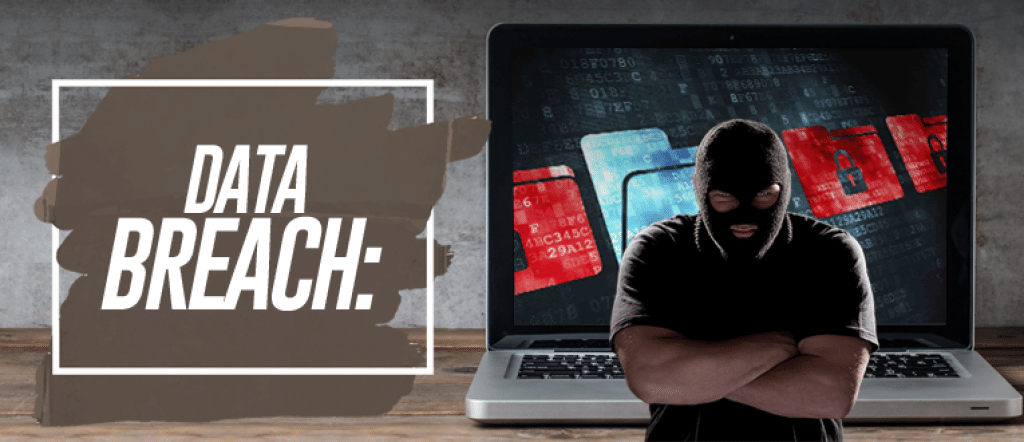Data Breach
Simply stated, a data breach is either an intentional or unintentional release of data into untrusted hands.
The problem is known by a variety of names, including a data leak, data spill, and an unintentional information disclosure.
Regardless of what you call it, a data breach can spell trouble to countless numbers of people any and every time it happens.
Who Causes a Data Breach?
A data breach can be caused by any number of things. It can be caused on purpose or accidentally.
It can be caused by something as innocent as the careless disposal of computer equipment or data storage media, or as purposeful as a theft by hackers, organized crime, or foreign governments.
Regardless of the type of data that is breached, it is considered a violation of security when sensitive or confidential information is accessed, copied, transmitted, viewed, stolen, and/or used by parties who are unauthorized to access it.
The data involved can be financial information such as bank details, credit card information, or personal identification information.
Trade secrets of businesses or organizations, or intellectual property, also could be breached.
Numbers Please
According to the nonprofit consumer group Privacy Rights Clearinghouse, a total of 227,052,199 individual records that contained sensitive personal information were involved in data breaches in the U.S. between January of 2005 and May of 2008.
These figures do not include sensitive data that was apparently not actually disclosed.
Many jurisdictions across the country have passed data breach notification laws.
These require that a business or government body that has experienced a data breach inform customers and take other steps to remediate possible injuries caused by the breach.
Inside Job
The primary cause of data breaches are those working inside of an organization.
These might be accidental breaches (37 percent) to 14 percent.
External sources include hackers and state-sponsored actors.
IT managers work closely with professionals to educate them on how to deal with breaches from both internal and external sources.
Medical Data Breaches
Just as likely that someone can be a target for breaches of their financial data, medical records are also a common target.
Just as is the case with financial data breaches, many countries have enacted laws aimed at protecting those whose data has been breached.
These laws not only provide for methods of alleviating the impact of data breaches, but ensure that safeguards are enacted that protect information in the future.
Data breaches can mean a very serious loss of trust as well as data for all of those who have been affected.
The incidences of these breaches are still much more common than they should be.
Fortunately, as the methods of safeguards improve it is hoped that the number of these breaches will decrease in number as well as the damage they cause.
For More Information:
- http://www.privacyrights.org/data-breach
- http://www.idtheftcenter.org/id-theft/data-breaches.html
- http://www.experian.com/data-breach/data-breach-resources.html
[/vc_column_text][/vc_column][/vc_row]


This article is insightful. Data breaches have always been the top story that frightened the card industry throughout 2014. Awareness is required among people.
Over 227 million data breaches in 3.5 years – not counting the undisclosed ones! Wow! That’s a lot of mischief going on. For people that I know who’ve been targeted, the results can be devastating. Not only did they have to recover from the loss, but the incident really shook their confidence going forward.
I think that credit card companies, especially, are being more proactive about the issue, and really monitoring people’s spending habits so they can spot unusual activity and call the cardmembers. But I would really like to see more action in the medical industry. Now that health records are digitized, they are more susceptible to hackers and leaks.
It’s a staggering number, to say the least. You’re right about credit card companies going proactive and putting added layer of security for the benefit of the card members. The medical data is a completely different matter. Health records are digitized but most of the work are outsourced to other countries who offer cheaper labor cost. While this business model is cost-efficient, there is a big risk of data breach because it’s hard to monitor employees from other countries. Medical data breaches are far more rampant than what we’re being led to believe so there should be added safeguards to protect patients.
This reminds me about a few decades ago the government used to donate their used computers to schools. But then someone created software to restore harddrives that have been wiped and they had to take back their computers. Just goes to show that anyone, even the government, can be victim to a data breach! (I’m sure that’s not the only data breach they’ve experienced though, haha)
I guess I am not that concerned about medical data breaches, but I can see where just getting that information can be used against me. I have plenty of insurance and am a member of LifeLock so I feel pretty good about it!
Exactly Julian, Medical ID theft is becoming a real problem and it is more costly than any other type of identity theft. It’s also more difficult to monitor unless you have a company to be constantly checking for you. That’s why LifeLock is such a great service. They include that in their monitoring.
And what’s scary is, that people in medical offices are starting to get in on this and monetize people’s information in the black market. Make sure you do your due diligence when starting with a new doctor. It’s tough to trust your personal info with anyone nowadays.